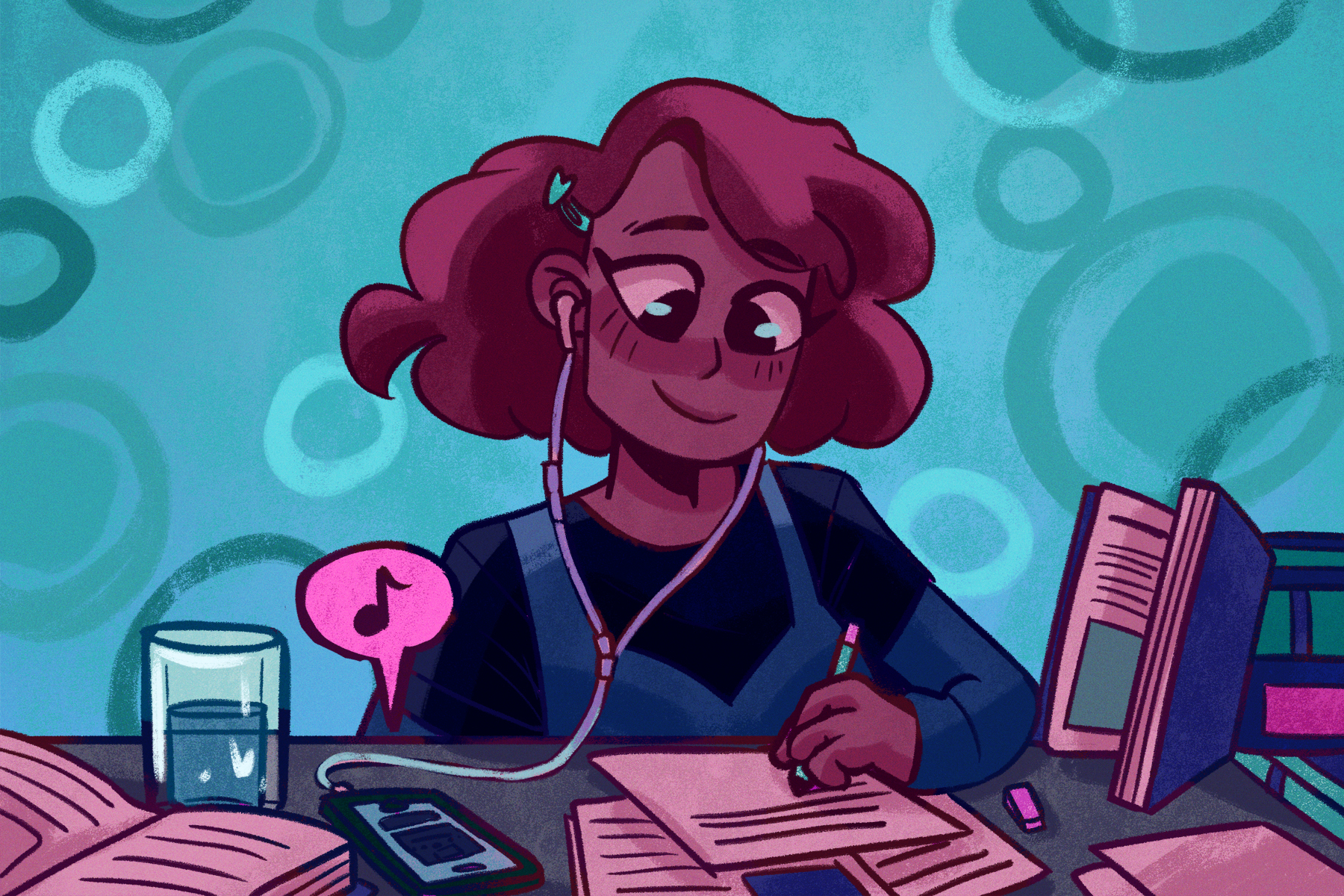When finals week creeps out of the shadows, students everywhere struggle to balance their schoolwork and mental health. Final exams often leave students overwhelmed, sacrificing their own mental health for the sake of a passing grade. It’s important for students to balance their mental health and schoolwork during these harsh weeks. These are eight methods for relieving stress and finding balance during finals week.
1. Make a Plan
As finals week rolls around, it’s important to make a plan for any projects or studying that needs to be done. Most final exams and projects give the student at least a month to prepare before they are due. By planning out which days they will study and work on projects during the upcoming weeks, students can feel less overwhelmed toward the due date. Mark on your calendar which days are dedicated to certain classes and schedule any time you anticipate the need for a break. Setting reminders to study at certain times is also beneficial. By making a plan, work can be spaced out, leaving the stress out the door.
2. Seek Help From the Tutoring Center
Finals can be overwhelming, and students may struggle over where to begin. Many colleges, however, offer free tutoring services for their students. Whether a student already has a general outline of their project and simply needs guidance, or is completely lost over where to begin, the tutoring centers are always available but often overlooked. Taking advantage of these services can greatly decrease stress from finals during this time. It’s important to act fast, though, to ensure an appointment if necessary.
3. Exercise
Students are probably tired of hearing about exercising to relieve stress, but it’s true. Exercise releases endorphins and dopamine to the brain, assisting pain relief and de-stressing the body and mind. Exercising regularly, even for just an hour, can benefit the immune system during finals week. It may seem difficult to find the time to exercise with all the work that needs to be done, but it’s possible to study while exercising. Try listening to an audiobook while going for a run or watching videos while using exercise equipment. Even just one hour can benefit students’ mental and physical health.
4. Attend Campus Stress Relief Events
Many campuses offer counseling and events that can relieve stress for all students during finals week. Some campuses bring in emotional support dogs for students to play with, while others may have a group scream to let out all the stress and anger built up over the week. These services are usually free. Students can stop in quickly on their way to grab a cup of coffee and continue studying more easily. It doesn’t have to take long, but the results are long-lasting.
5. Ask for Your Professor’s Help
Besides using the tutoring services on campus, students always have the opportunity to talk to their professors. If students are struggling to understand certain concepts or want to clarify the rules for a project, they can always email their professors. Professors will usually respond, and if additional help is needed, students can set up a meeting with them during their office hours. Students can also just head down to their office during office hours if the matter is more urgent. It’s important to remember that professors are not your enemy; they want to see you succeed and are here to help.
6. Don’t Forget to Eat
During finals week, many students not only neglect their mental health but neglect their physical health as well. It’s important to take the time to eat a balanced meal each day during exams. Students are using a lot of energy while studying, and a simple cup of coffee isn’t going to cut it. Remembering to have breakfast, lunch and dinner will prepare the body for the fast-paced week ahead. It doesn’t have to be homemade; it can be quick and easy but enough to fuel the body. Taking the time to prepare your brain for each day is crucial for finals week. Don’t forget to pack snacks for studying and drink lots of water.
7. Study Groups
What’s better than studying alone? Studying with a group, of course. Students can form study groups to get through finals together. Sharing notes and quizzing each other can benefit one’s grades and fulfill one’s social needs. Students can share their knowledge with their classmates while receiving help for themselves. Studying with friends allows students to feel less overwhelmed and know that they are not alone during the roughest week of the semester.
8. Put Yourself First
It’s important for students to remember that a grade is just a grade. Although it may seem like the end of the world if you don’t pass the test or get an A on the final project — it’s not. College is at your own pace; it’s not a race. If it takes a little longer to pass the class, that’s okay. The most important thing about finals week is the health and safety of the student. A class can always be retaken, but a student’s mental health cannot always be fixed. Take the time to do something that calms you down or makes you happy. Hang out with friends or watch your favorite movie. It’s a stressful week, but it doesn’t have to be.
Finals week can feel like the most stressful period students face in their lives. It’s important to remember that the individual student comes first, and the work comes second. If you are struggling with the stress of finals, don’t hesitate to seek guidance from peers or the school to keep yourself in a solid mental state. Finals week is temporary, and soon you’ll see the rainbow after the storm.

















